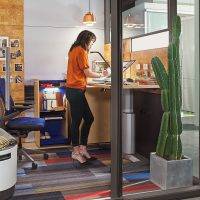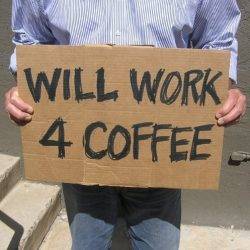June 6, 2017
Three quarters of HR professionals expect Brexit to escalate the war for talent 0
 New research claims that, as a result of the UK’s decision to leave the EU, nearly three-quarters of HR professionals (72 percent) expect the war for talent to intensify, and nearly two-thirds (61 percent) predict further difficulty recruiting senior and skilled employees over the next three years. The latest CIPD/Hays Resourcing and Talent Planning Survey of more than 1,000 HR professionals found that recruitment difficulties are already being reported by three quarters of HR professionals (75 percent), and nearly two-thirds (65 percent) agree that the skills needed for jobs in their organisation are changing. Professionals with leadership (58 percent), digital (54 percent) and commercial awareness skills (51 percent) are most likely to increase in demand over the next 12 months.
New research claims that, as a result of the UK’s decision to leave the EU, nearly three-quarters of HR professionals (72 percent) expect the war for talent to intensify, and nearly two-thirds (61 percent) predict further difficulty recruiting senior and skilled employees over the next three years. The latest CIPD/Hays Resourcing and Talent Planning Survey of more than 1,000 HR professionals found that recruitment difficulties are already being reported by three quarters of HR professionals (75 percent), and nearly two-thirds (65 percent) agree that the skills needed for jobs in their organisation are changing. Professionals with leadership (58 percent), digital (54 percent) and commercial awareness skills (51 percent) are most likely to increase in demand over the next 12 months.







 One in seven SME employees admit to feigning illness and taking at least three bogus sick days off each year in order to cope with a culture which expects them to be available all the time. Nearly half (42 percent) of staff who are pulling sickies do so because they need a rest as just under half (46 percent) of SME employees bother to use up their full holiday allowance. At the end of 2016, SMEs employed 15.7 million people and accounted for 99 percent of all private sector businesses. Due to the piling pressure on small business owners, half (51 percent) of the 1,500 British SME workers and business owners who were polled by breatheHR confessed to contacting an employee while they were on sick leave – this number jumps to 72 percent for younger business owners (18-34-year-olds) showing clear generational differences. Additionally, three-quarters (71 percent) of business owners would expect employees to work if they had a common cold. Why? Because absenteeism impacts the bottom line – 85 percent of business owners say it has an economic effect.
One in seven SME employees admit to feigning illness and taking at least three bogus sick days off each year in order to cope with a culture which expects them to be available all the time. Nearly half (42 percent) of staff who are pulling sickies do so because they need a rest as just under half (46 percent) of SME employees bother to use up their full holiday allowance. At the end of 2016, SMEs employed 15.7 million people and accounted for 99 percent of all private sector businesses. Due to the piling pressure on small business owners, half (51 percent) of the 1,500 British SME workers and business owners who were polled by breatheHR confessed to contacting an employee while they were on sick leave – this number jumps to 72 percent for younger business owners (18-34-year-olds) showing clear generational differences. Additionally, three-quarters (71 percent) of business owners would expect employees to work if they had a common cold. Why? Because absenteeism impacts the bottom line – 85 percent of business owners say it has an economic effect.






























 Nearly half of UK employees are effectively working an extra day per week for free, claims new research from Powwownow. On average, UK workers spend just under seven hours per week working outside of contracted hours – the equivalent of a nine-to-five working day with an hour for lunch – but nearly half of them (42 percent) receive no pay for this extra days’ worth of work. A quarter of UK workers (26 percent) receive their standard pay for any overtime, while a fifth (21 percent) are rewarded with ‘time and a half’. Only 6 per cent receive ‘double time’. Germans get a worst deal though, as employees spend an average of 7 hours and 54 minutes working extra but a huge 61 percent of workers receive no pay at all for this time. Workers in Sweden spend the least time working outside of contracted hours, with only 4 hours and 9 minutes of extra work per week.
Nearly half of UK employees are effectively working an extra day per week for free, claims new research from Powwownow. On average, UK workers spend just under seven hours per week working outside of contracted hours – the equivalent of a nine-to-five working day with an hour for lunch – but nearly half of them (42 percent) receive no pay for this extra days’ worth of work. A quarter of UK workers (26 percent) receive their standard pay for any overtime, while a fifth (21 percent) are rewarded with ‘time and a half’. Only 6 per cent receive ‘double time’. Germans get a worst deal though, as employees spend an average of 7 hours and 54 minutes working extra but a huge 61 percent of workers receive no pay at all for this time. Workers in Sweden spend the least time working outside of contracted hours, with only 4 hours and 9 minutes of extra work per week.







June 5, 2017
Podcast: Is universal basic income a Utopia for realists? 0
by Mark Eltringham • Comment, Podcasts
(more…)